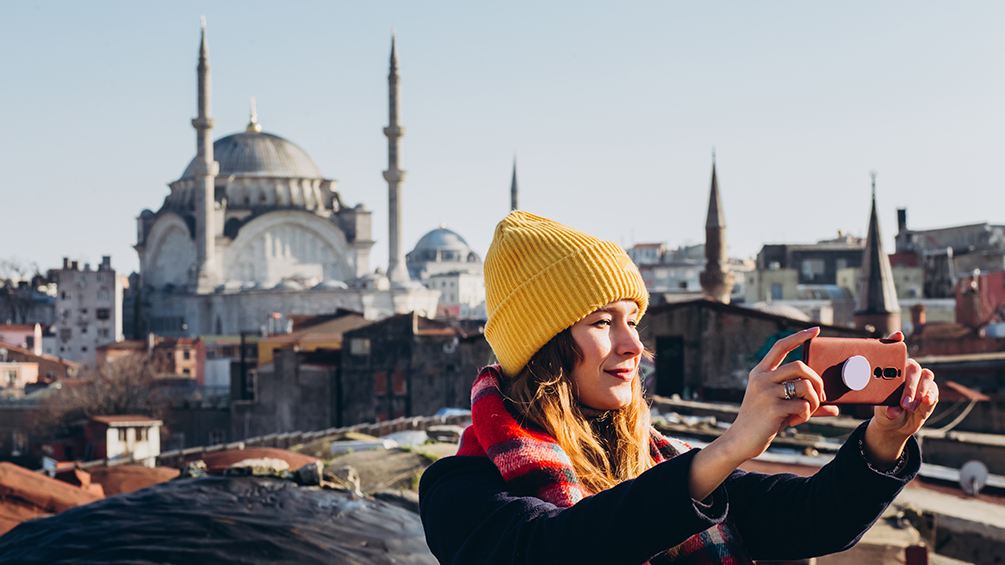South Korea
How the Medical system works in South Korea
Located in northeast Asia, South Korea is bordered by the Sea of Japan to the east and the Yellow Sea to the west. The urban district of Seoul, the capital, is home to nearly half the country's population and is one of the most densely populated megacities in the world.
South Korea covers the southern half of the Korean peninsula. It shares its only border with the Democratic People's Republic of Korea to the north, following the partition of the territory in 1945. After the end of the Korean War in 1953, South Korea experienced a real economic boom: it was, in 2021, the 10th largest economy in the world in terms of GDP.
Since the 1950s, the health sector has undergone some remarkable improvements. So much so that South Korea's healthcare system is now among the best in the world.
The country can boast top quality medical care, provided by highly qualified professionals. The very modern medical infrastructure comfortably meets international standards.
Thanks to universal health insurance in South Korea, a wide range of healthcare services can be provided at a reasonable cost. The national health insurance system is managed by the National Health Insurance Service (NHIS).
Healthcare for expats in South Korea
As of July 2019, all foreign nationals residing in South Korea for more than 6 months are required to contribute to the health insurance scheme. The amount of contributions varies depending on employment status and salary. On average it costs 110,000 KRW per month (around €80).
- If you are working in South Korea under a local employment contract: your employer will enroll you in the health insurance scheme. The company pays 50% of the employee's healthcare and 5% of salary is deducted to fund the health insurance contributions.
- If you are self-employed in South Korea: you will have to apply for enrolment yourself. You will only be able to join the health insurance scheme once you have obtained your Residence Card (or ARC - Alien Registration Card). This card is mandatory for all foreign nationals wishing to stay in the country for more than 90 days.
- To get your Residence Card, go to the nearest immigration office with the required documents (for more information: https://www.hikorea.go.kr/Main.pt
- Then go to the nearest NHIS office with your Residence Card to apply for enrollment in the health insurance scheme. The amount of contributions will depend on your income.
The South Korean health insurance scheme generally covers 50% to 80% of medical expenses (consultation with a general practitioner, specialist, hospitalization, etc.). It is also highly recommended to take out international health insurance before going to live in South Korea. This will ensure you are covered for the type of stay, your healthcare needs and those of your family. In addition, it will allow you to benefit from repatriation insurance, which is essential during a stay abroad.
Visiting a doctor in South Korea
Most doctors speak good English in the large cities, but this is not the case for all healthcare personnel.
As far as the cost of healthcare is concerned, it is very affordable: a consultation with a general practitioner averages between 10 and 15 euros (between 13,600 and 20,000 South Korean won).
Traditional Korean medicine is very much a part of medical practices in South Korea, both in the large cities and outside the urban areas. You will find many clinics offering herbal treatments, acupuncture, moxibustion, aromatherapy, and more.
Being admitted to hospital in South Korea
In South Korea, the number of healthcare facilities has increased by 32% over the past 10 years, according to the FKCCI. Hospitals are highly efficient and equipped with modern facilities.
If you are admitted to hospital, you may be asked to pay the cost of the stay and any tests and examinations in advance.
90% of hospitals in South Korea are private, and 10% belong to the public sector. However, public sector hospitals are not free, the patient contributes 20% to the cost of the hospitalization which is why it is advisable to take out private insurance to cover the remaining amount. It also gives the patient access to the private sector.
Buying medication in South Korea
Under the health insurance scheme, the patient's contribution to the purchase of medication is generally 35% of the total cost.
Many medicines are available in convenience stores and supermarkets (treatments for colds, fever, intestinal disorders, etc.). In pharmacies, you often need to get a prescription from a doctor because not many medicines are available over the counter.
Good to know: if you are traveling with medication, especially sleeping pills or painkillers, remember to take your doctor's prescription with you to avoid any problems at the airport.
Vaccinations in South Korea
No vaccines are mandatory for South Korea, but it is advisable to be up to date with the universal vaccines (diphtheria, tetanus, polio, hepatitis B, etc.).
Depending on the type of stay, vaccination may also be recommended against Japanese encephalitis, rabies, typhoid, and hepatitis A.
You should also be careful to guard against coronavirus: follow the protective measures, wash your hands regularly, wear a mask when required, etc. Consult our FAQ on the subject to find out more.
Health risks in South Korea
South Korea has suffered from several outbreaks of avian flu (H1N1) in recent years. It is therefore advisable to avoid contact with poultry and birds (in markets, for example).
Malaria is only present in some northern provinces (Gyeonggi and Gangwon). If you plan a stay in these regions between May and September, remember to protect yourself from mosquito bites (wear long clothes, use repellents, etc.).
Important numbers in South Korea
Here are the numbers to call in an emergency in South Korea:
- Fire and ambulance: 119
- Police: 112
- English-speaking call center for medical emergencies: 1339
- French Embassy in Seoul: + 82 2-3149-4300

